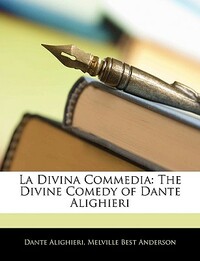Take a photo of a barcode or cover
310 reviews for:
La Divina Commedia: The Divine Comedy of Dante Alighieri
Melville Best Anderson, Dante Alighieri
310 reviews for:
La Divina Commedia: The Divine Comedy of Dante Alighieri
Melville Best Anderson, Dante Alighieri
adventurous
challenging
dark
emotional
reflective
sad
tense
slow-paced
Plot or Character Driven:
A mix
Strong character development:
Yes
Loveable characters:
Complicated
Diverse cast of characters:
N/A
Flaws of characters a main focus:
Yes
3.6 - I enjoyed Inferno a bit more than I did Purgatory just because Purgatory was harder to follow because of the references. I definitely needed the notes to assist with this read but overall I enjoyed this. I definitely love the uses and depictions of the different sins or acts, especially because these were different ones than Inferno. Inferno focused more on physical acts to another person whereas these are more psychological and while they will affect others, or have the potential to, they are a bit more personal. It definitely felt like Dante at times was relating to these for that reason in comparison to Inferno as well where he did not relate, or at least that's how it feels to me.
I also find this one is very beautiful and had a lot more imagery as well. It was a great time. Definitely love this, but I know if I knew more of the references I'd love this even more than I do now.
I also find this one is very beautiful and had a lot more imagery as well. It was a great time. Definitely love this, but I know if I knew more of the references I'd love this even more than I do now.
Definitely a book worth reading and rereading!
adventurous
dark
emotional
funny
mysterious
reflective
medium-paced
Plot or Character Driven:
Plot
Strong character development:
Complicated
Loveable characters:
Complicated
Diverse cast of characters:
Complicated
Flaws of characters a main focus:
Complicated
adventurous
medium-paced
Originally posted on my blog: Nonstop Reader.
Purgatorio is the second volume of Mary Jo Bang's translation of Alighieri's 14th century Divine Comedy. Originally published in 1320, a year before Alighieri's death, this edition, published by Graywolf Press is 336 pages and is available in paperback and ebook formats.
This is the same epic narrative poem which has been the bane (and sometimes, joy) of students since time immemorial. For 700 years, classics students and scholars have pored over and digested Dante's words. This is a new, understandable, and most importantly, readable translation which remains true to the original as much as possible.
Each canto is first provided in triplet translation. The prose flows naturally for modern English speakers and in some cases made me grin and even surprised a chuckle a couple of times. The translator doesn't shy away from modern vernacular ("bugger off", "take credit", "...eyes were glued"), and the poem as a whole benefits from it. After the translation, the author has provided copious annotations and notes where subtleties which would've been understood by the original readers has been lost to time, as well as interpretations and explanations of time passage and other mundane information about the setting or characters (there are *so* many characters).
The book includes a good bibliography in addition to the chapter notes and annotations. Despite the improved understandability of this very good modern translation, this is not "easy reading". It requires some degree of engagement by the reader and I would recommend either pre-reading a precis (The World of Dante has some good resources), or reading with a good study guide whilst working through this edition.
Five stars. This is an accessible and good translation in modern vernacular.
Disclosure: I received an ARC at no cost from the author/publisher for review purposes.
Purgatorio is the second volume of Mary Jo Bang's translation of Alighieri's 14th century Divine Comedy. Originally published in 1320, a year before Alighieri's death, this edition, published by Graywolf Press is 336 pages and is available in paperback and ebook formats.
This is the same epic narrative poem which has been the bane (and sometimes, joy) of students since time immemorial. For 700 years, classics students and scholars have pored over and digested Dante's words. This is a new, understandable, and most importantly, readable translation which remains true to the original as much as possible.
Each canto is first provided in triplet translation. The prose flows naturally for modern English speakers and in some cases made me grin and even surprised a chuckle a couple of times. The translator doesn't shy away from modern vernacular ("bugger off", "take credit", "...eyes were glued"), and the poem as a whole benefits from it. After the translation, the author has provided copious annotations and notes where subtleties which would've been understood by the original readers has been lost to time, as well as interpretations and explanations of time passage and other mundane information about the setting or characters (there are *so* many characters).
The book includes a good bibliography in addition to the chapter notes and annotations. Despite the improved understandability of this very good modern translation, this is not "easy reading". It requires some degree of engagement by the reader and I would recommend either pre-reading a precis (The World of Dante has some good resources), or reading with a good study guide whilst working through this edition.
Five stars. This is an accessible and good translation in modern vernacular.
Disclosure: I received an ARC at no cost from the author/publisher for review purposes.
3.5/5
read excerpts (like 2/3 of it) for hum. better than inferno tbh
read excerpts (like 2/3 of it) for hum. better than inferno tbh
(read for class) dante and virgil were kinda gay and you can’t convince me otherwise #14thcenturyslayers
adventurous
emotional
reflective
medium-paced
Plot or Character Driven:
A mix
Strong character development:
Yes
Loveable characters:
Complicated
Diverse cast of characters:
No
Flaws of characters a main focus:
Yes
It doesn’t quite hit the same as the previous volume of ‘The Divine Comedy’ but it’s still a wonderful poem that depicts an arduous journey that gradually improves. The departure of Virgil was particularly emotional. I’d highly recommend.
adventurous
challenging
dark
emotional
hopeful
reflective
sad
tense
slow-paced
Plot or Character Driven:
A mix
Strong character development:
Yes
Loveable characters:
Complicated
Diverse cast of characters:
No
Flaws of characters a main focus:
Yes






